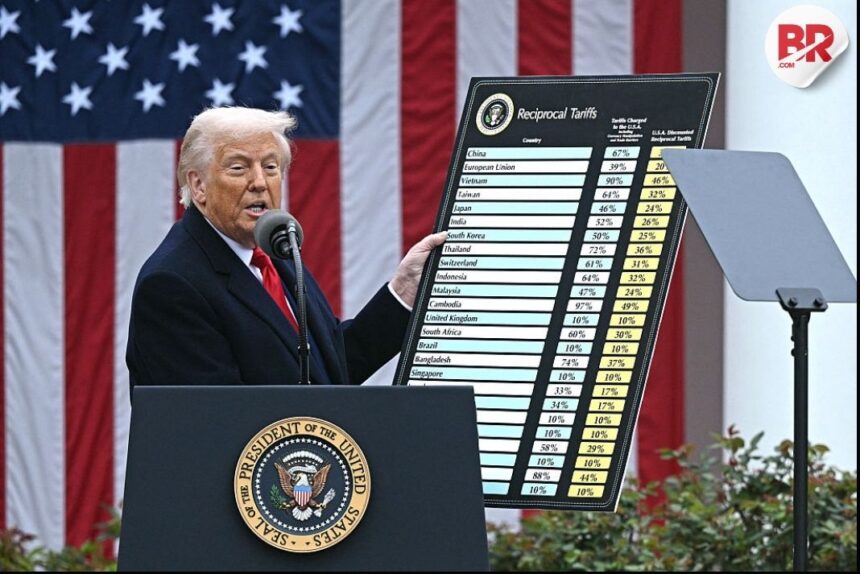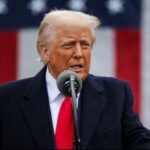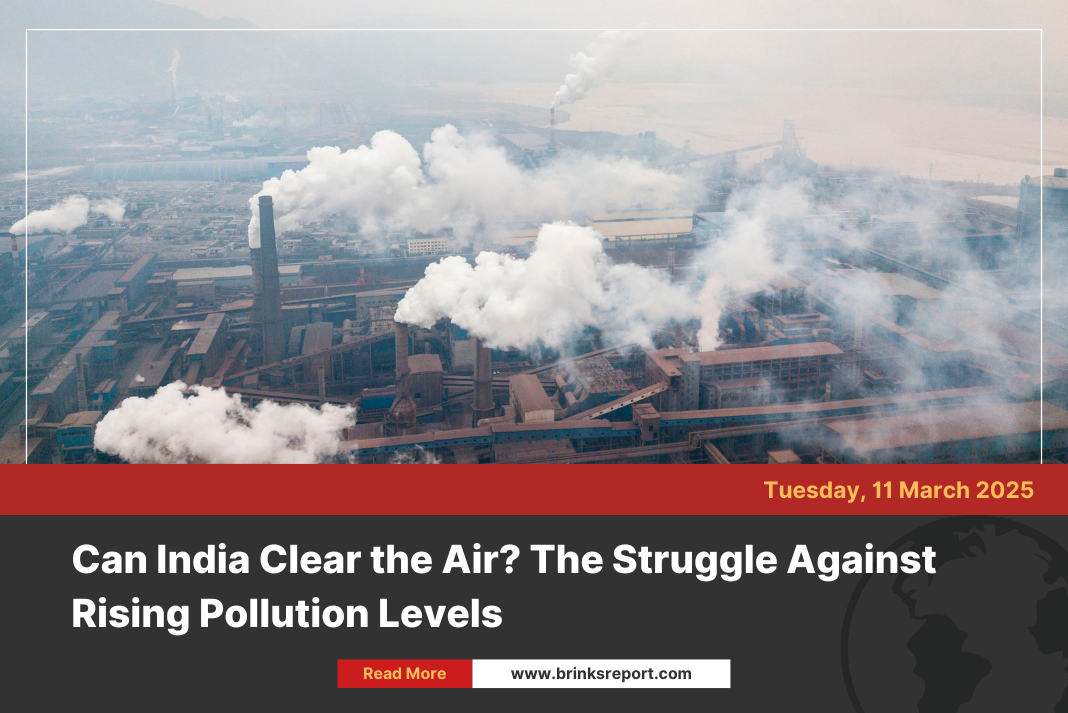
There were reports on Monday that U.S. President Donald Trump might pause tariffs for 90 days for all countries except China. However, the White House quickly denied this, calling the reports “false” and “fake news.”
Market Reaction:
The stock market reacted strongly to the news. At first, U.S. stocks rose because investors thought the tariff pause might happen. But when the White House denied the news, the stock market dropped again.

President Trump shared a video on social media featuring Fox Business host Maria Bartiromo, who praised his economic actions like falling interest rates, lower oil prices, and deregulation. She said, “President Trump is not going to bend.”
Global Impact:
Trump’s tough stance on tariffs caused panic in global markets. He warned that foreign countries would need to pay a lot to remove the tariffs. This worried investors around the world, causing stock prices in Asia and Europe to fall and oil prices to drop sharply.
Goldman Sachs increased the chances of a U.S. recession in the next year to 45%. JPMorgan also reduced its growth forecast for the U.S. economy, now expecting a slight shrink instead of growth.
Financial expert Robert Pavlik said people are scared a recession—or even a depression—could be coming.
Read More: Trump Announces U.S.-Iran Nuclear Talks; Iran Says They’ll Be Indirect
Trump’s Response:
Trump stayed firm on Monday. He criticized China for retaliating with its own tariffs and urged the Federal Reserve to cut interest rates. He posted online:
“The United States has a chance to do something that should have been done DECADES AGO. Don’t be Weak! Don’t be Stupid!”
While flying back from a weekend golf trip in Florida, Trump told reporters that sometimes you have to take “medicine” to fix big problems—even if it’s painful at first.
What the White House Said:
White House trade adviser Peter Navarro called talk of a recession “silly.” Another official, Kevin Hassett, said Trump is open to good deals from other countries if they benefit American workers and farmers.
Global Reactions:
Other world leaders criticized Trump’s tariffs. China, the second-largest economy, called it “economic bullying” and responded with its own tariffs. Chinese markets dropped so much that their government stepped in to calm investors.
Taiwan’s stock market saw its biggest one-day drop in history—almost 10%.
Top business leaders in the U.S. also warned about the damage tariffs could cause. JPMorgan CEO Jamie Dimon and investor Bill Ackman said they could hurt the economy for a long time. Elon Musk even posted a video praising free trade and said he hopes for zero tariffs between the U.S. and Europe.
Also Read: China Fights Back: Contingency Plans Unveiled as U.S. Tariffs Shake Economy
Is This Strategy or a Long-Term Plan?
No one is sure if Trump’s tariff moves are just a strategy to get better trade deals or if they are part of a permanent change.
EU leaders said they are willing to negotiate and offered zero tariffs on industrial goods. But they’re also worried about backlash affecting their exports like wine, cars, and aircraft parts. For example, Audi is holding back some cars at U.S. ports due to the new auto tariffs.
Japan’s Prime Minister spoke with Trump and plans to visit Washington to talk about a trade deal.
Some countries like Taiwan and India are open to talks and are trying to avoid a trade fight. Taiwan even offered zero tariffs as a starting point for discussions.
Meanwhile, investors believe the economic risks may force the U.S. Federal Reserve to cut interest rates soon, though Fed Chairman Jerome Powell hasn’t confirmed any plans yet.












